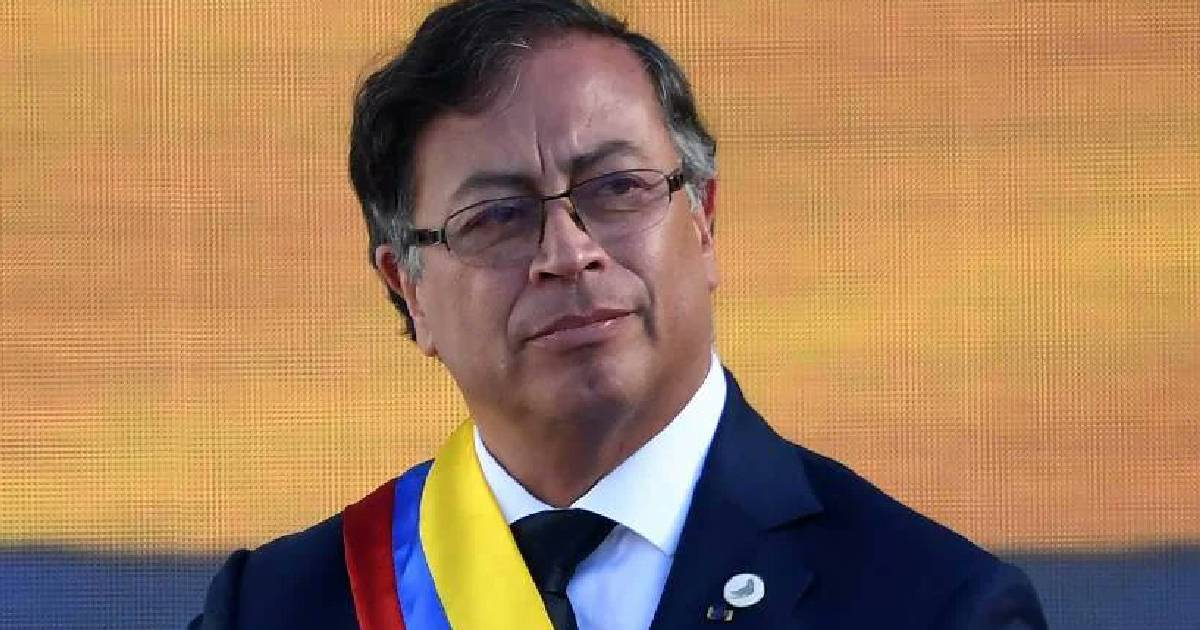
Related videos:
The president of Colombia, Gustavo Petro, announced this Sunday his decision to prohibit the entry of military planes from the United States transporting deported Colombian migrants. The measure, as explained by the president, responds to a series of irregularities in the repatriation procedures carried out by the U.S. government.
In a statement released on his social media, Petro emphasized that “the U.S. cannot treat Colombian migrants as criminals” and questioned the conditions under which his fellow citizens are being deported.
Moreover, he emphasized that these actions have not been previously coordinated with the Colombian authorities. "The U.S. must establish a protocol for treating migrants with dignity before we receive them," he pointed out.
In another message, Petro stated that he will not allow the deportees to be sent on military planes, instead demanding the use of civilian aircraft and a humanitarian treatment that respects both the citizens and the sovereignty of the country.
The president also emphasized that, although he cannot prevent the United States from deporting migrants, Colombia will not accept repatriations that lack dignity.
"A migrant is not a criminal and must be treated with the dignity that every human being deserves. That is why I ordered the return of the U.S. military planes that were coming with Colombian migrants. I cannot force migrants to stay in a country that doesn’t want them; but if that country returns them, it must be done with dignity and respect for them and for our country. We will receive our compatriots on civilian planes, without treating them as criminals. Colombia deserves respect," he wrote.
This decision by the Colombian president comes in the context of the implementation of stricter immigration policies following Donald Trump's return to the presidency of the United States.
Since taking office, the Trump administration has intensified the mass deportations of undocumented immigrants, including Colombians.
According to reports, arrests have been made in key cities such as Chicago, with a particular focus on individuals with criminal records.
Additionally, the Trump administration eliminated tools such as the CBP One application, which was used to manage immigration appointments.
In response to Colombia's stance, the U.S. State Department announced the indefinite suspension of visa issuance at its embassy in Bogotá, which affects thousands of Colombians seeking to travel to the North American country.
Petro's decision follows that of the Government of Mexico, which denied a request from the United States to allow a military aircraft, destined to deport migrants, to land on Mexican territory.
According to reports, while two similar flights with approximately 80 migrants each were sent to Guatemala, Mexico denied permission for a C-17 transport aircraft to carry out a similar operation in its territory.
The Mexican Secretariat of Foreign Affairs stated that the country will always welcome its repatriated citizens "with open arms," without providing specific details regarding the refusal for the military plane to land.
This decision comes in the context of diplomatic tensions between Mexico and the United States, particularly following the reactivation of the "Remain in Mexico" program by the Trump administration, which requires non-Mexican asylum seekers to wait in Mexico while their cases are processed in the United States.
The Mexican president, Claudia Sheinbaum, has expressed her disagreement with mass deportations and emphasized that any measures related to migration should result from bilateral agreements and respect Mexico's sovereignty.
These incidents reflect the complexities and challenges in the migratory relationship between the United States and Latin America, highlighting the need for cooperation based on mutual respect and the dignity of migrants.
Frequently asked questions about Gustavo Petro's decision to disapprove U.S. military planes
Why did Gustavo Petro disallow the entry of U.S. military planes carrying Colombian migrants?
Gustavo Petro disapproved the entry of US military planes because he believes that Colombian migrants are being treated like criminals and in undignified conditions. Petro demands that the United States establish a protocol for dignified treatment before accepting the repatriation of Colombians.
What conditions does President Gustavo Petro require to accept the repatriation of Colombian migrants?
The president Petro demands that repatriations be carried out on civilian planes and with humanitarian treatment that respects both migrants and Colombian sovereignty. He believes that a migrant is not a criminal and should be treated with dignity.
How has the United States responded to Colombia's decision regarding military flights?
In response to Colombia's stance, the U.S. State Department indefinitely suspended the issuance of visas at its embassy in Bogotá. This impacts thousands of Colombians seeking to travel to the United States.
What international context surrounds Gustavo Petro's decision on repatriation flights?
Gustavo Petro's decision comes in a context of stricter immigration policies imposed by the Donald Trump administration, which has intensified the deportations of undocumented immigrants. Similar tensions have also been recorded with Mexico, which has rejected U.S. military flights carrying migrants.
Filed under: